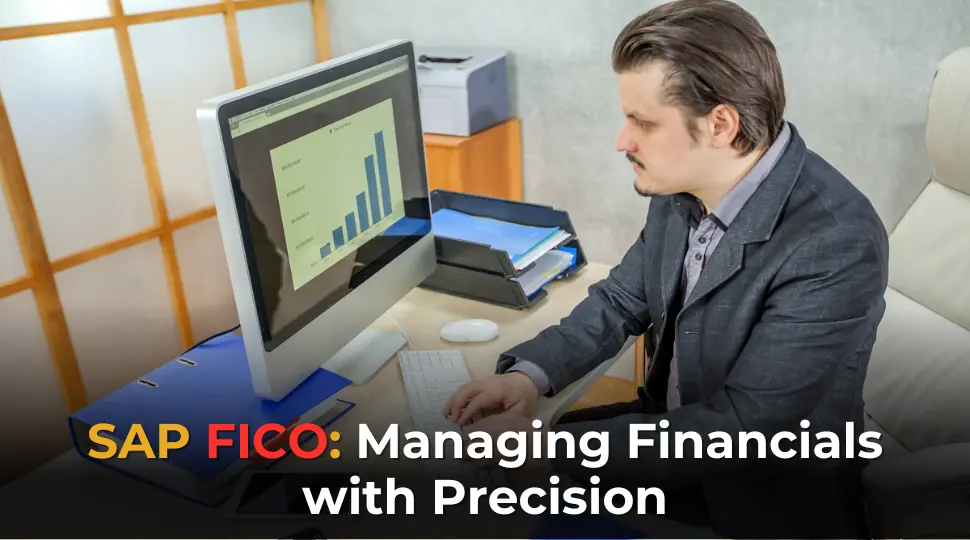SAP FICO: Managing Financials with Precision


SAP FICO -Financial Accounting and Controlling is best of the fundamental modules of SAP ERP that supports organizations to manage their financial transactions, reporting, and decision-making process. It makes sure that financial information is properly accounted for and supports enhanced cost control and profitability analysis.SAP FICO is implemented in any organization to deliver financial regulatory compliance, accounting simplicity, and more financial reporting. The module is vital for organizations in pursuit of financial precision and business effectiveness.
This sub-module deals with external financial reporting and includes:
This sub-module manages internal financial control and includes:
SAP FICO enables organizations to have up-to-the-minute (current, real-time, instantaneous) financial information, which supports good-informed (sound, judicious, well-based) decision-making. Some of the most significant capabilities are:
SAP FICO delivers financial data capture accurately, and there is no scope for fraud or error.
SCP support for Kubernetes and containerized applications makes it easy to develop, manage, and scale applications at maximum efficiency.
Independent microservice deployment for developers to abolish downtime and optimize performance.
SCP. provides pre-built APIs and API management capabilities for easy connection of and extension to applications.
Developers can work with open-source frameworks including Node.js, Java, Python, and Cloud Foundry by leveraging them.
Firms can utilize AI/ML models by including or adding. them to create smart applications which possess predictive analytics and automation features.
SCP. SAP Leonardo AI is integrated to put smart technology into applications.
SCP is developed with the in-memory SAP HANA, enabling performance and computing with real-time analytics and decision-making.
Organizations can analyze big data in real-time to produce enhanced customer experience and business processes.
Recognize business objectives before SAP FICO implementation.
Clean and move financial data to avoid discrepancies.
Train finance personnel to achieve maximum use of SAP FICO.
Configure specifically as per distinct business processes.
Periodically monitor and upgrade SAP FICO to be in sync with financial guidelines and market tendencies.
A leading vehicle manufacturer used SAP FICO to improve cost tracing, lowering monetary errors by 30%.
A multinational retail company integrated SAP FICO into its value chain, making inventory cost handling better and driving profits up by 20%.
A pharmaceutical company-used SAP FICO for finance consolidation and taxation reporting across geographically dispersed areas, leading to enhanced financial visibility
SAP FICO is a highly recommended financial management system that enables organizations to manage financial transactions, control costs, and provide real-time reports with accuracy. That is, seamless integration with other SAP modules makes organizations compliant, enables informed business decisions, and maximizes overall efficiency.
Whether you are a financial expert or a company seeking better financial competence, SAP FICO is the best option for scalable and stable financial management. Enroll in our SAP FICO Certification Course today and enhance your expertise in finance and controlling with hands-on training
SAP FICO is implemented in manufacturing, retail, healthcare, banking, and IT services for carrying out, performing, conducting financial reporting and cost accounting.
No, SAP FICO does not require specialized hardware and can be adopted by small, medium, and large businesses where there is a requirement for systematic financial management.
Implementation time is variable, but usually 3-6 months for medium-sized organizations, subject to data migration and requirements for customization.
Experience in finance, accounting, or ERP is desired but not essential.
Yes, SAP FICO supports numerous third-party ERP and financial packages to enable smooth working.
